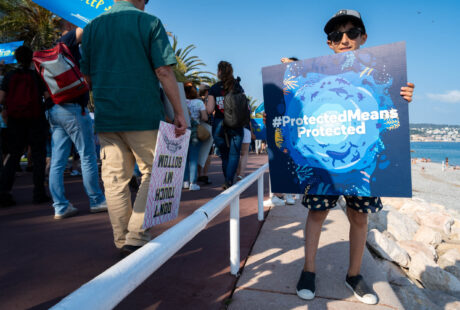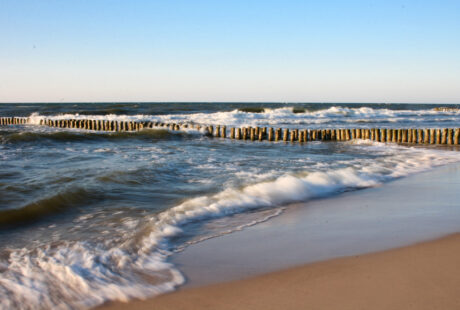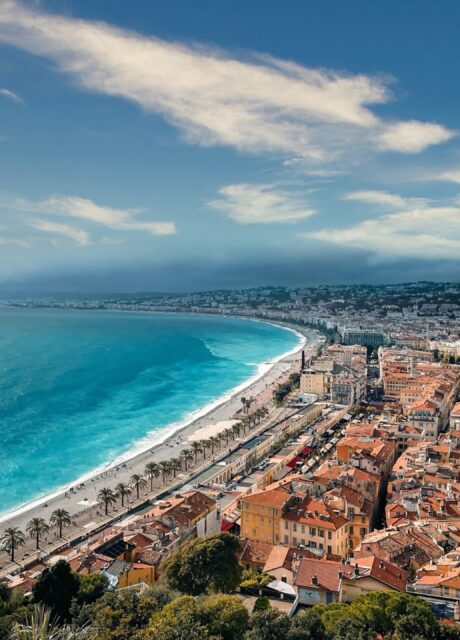NGOs and fishers’ organisations urge the European Commission and Member States to promote innovative and eco-friendly fishing enterprises as the key for sustaining livelihoods in coastal communities, prevent overfishing and help support a healthy ocean.
01/10/2024 Brussels – In light of escalating environmental and economic challenges (1), a new report (2) published today by Seas At Risk, Low Impact Fishers of Europe, Ecologistas en Acción, Sciaena and BUND, unveils how innovative business models developed by small-scale, low-impact fishers and fishmongers could catalyse change in the fishing industry at the forefront of the EU’s clean transition. The report showcases twelve successful alternative business models to address critical issues such as biodiversity loss, climate change and the socio-economic struggles of coastal communities. These models tackle problems including market dominance by intermediaries, the concentration of fishing quotas in the hands of a few large-scale interests, unsuitable fishing regulations and declining fish populations.
By developing strategies such as direct marketing, novel labelling systems and profitable markets for invasive species, the report reveals how innovative business models not only offer new market opportunities but also ensure fairer prices for small-scale, low-impact fishers, who are often marginalised in traditional markets, all while minimising the sector’s environmental footprint.
NGOs and fishers’ organisations urge policy-makers to act on the report’s findings by addressing the broader social, economic, and environmental impacts of unfit market rules. These groups emphasise the need for a balanced regulatory approach that acknowledges the unique contributions of small-scale, low-impact fisheries. Key recommendations include providing priority access to fishing areas and quotas, implementing new qualitative labelling systems, and increasing financial and administrative support to ensure these fisheries can thrive and contribute to a sustainable future. (3)
Bruno Nicostrate, Senior Fisheries Policy Officer at Seas At Risk said:
“To tackle climate change and preserve our marine ecosystems, the fishing sector must minimise its environmental impact and maximise its societal benefits. Today, many low-impact fishers and fishmongers are already leading the way. The future EU Ocean Pact must scale these practices up by ensuring a supportive business-enabling environment for these groups.”
Marta Cavallé, Executive Secretary of the Low impact Fishers of Europe, said:
“Small-scale fishers are the backbone of our coastal communities. They have long been champions of low-impact fishing, but their contributions are under-recognised and their livelihoods are increasingly at risk. By boosting these precious innovative practices, we can ensure prosperous coastal communities, and resilient marine ecosystems. To make this transition a reality, regulatory and financial support from the European Commission and Member States is essential.”
Notes to editors
1) The fisheries sector is grappling with multiple crises that threaten both its economic viability and the health of marine ecosystems. Climate change and warming seas are altering fish migration patterns and impacting stocks, while biodiversity loss is putting additional pressure on already fragile ecosystems. Coastal communities, often critically reliant on small-scale fisheries, are facing economic hardship due to declining fish populations, unfavourable market conditions, and the consolidation of fishing quotas in the hands of large-scale operators. These challenges are compounded by inadequate regulations that fail to account for the value addition provided by low-impact fisheries and their dependence on this, leaving many small fishers marginalised and struggling to compete in centralised markets.
2) Read the report Fisheries for a new Era.
3) More recommendations: Seas At Risk: leaflet to Rethink Fisheries for Members of the European Parliament. LIFE Manifesto for the 10th Legislature 2024 – 2029
Posted on: 1 October 2024



